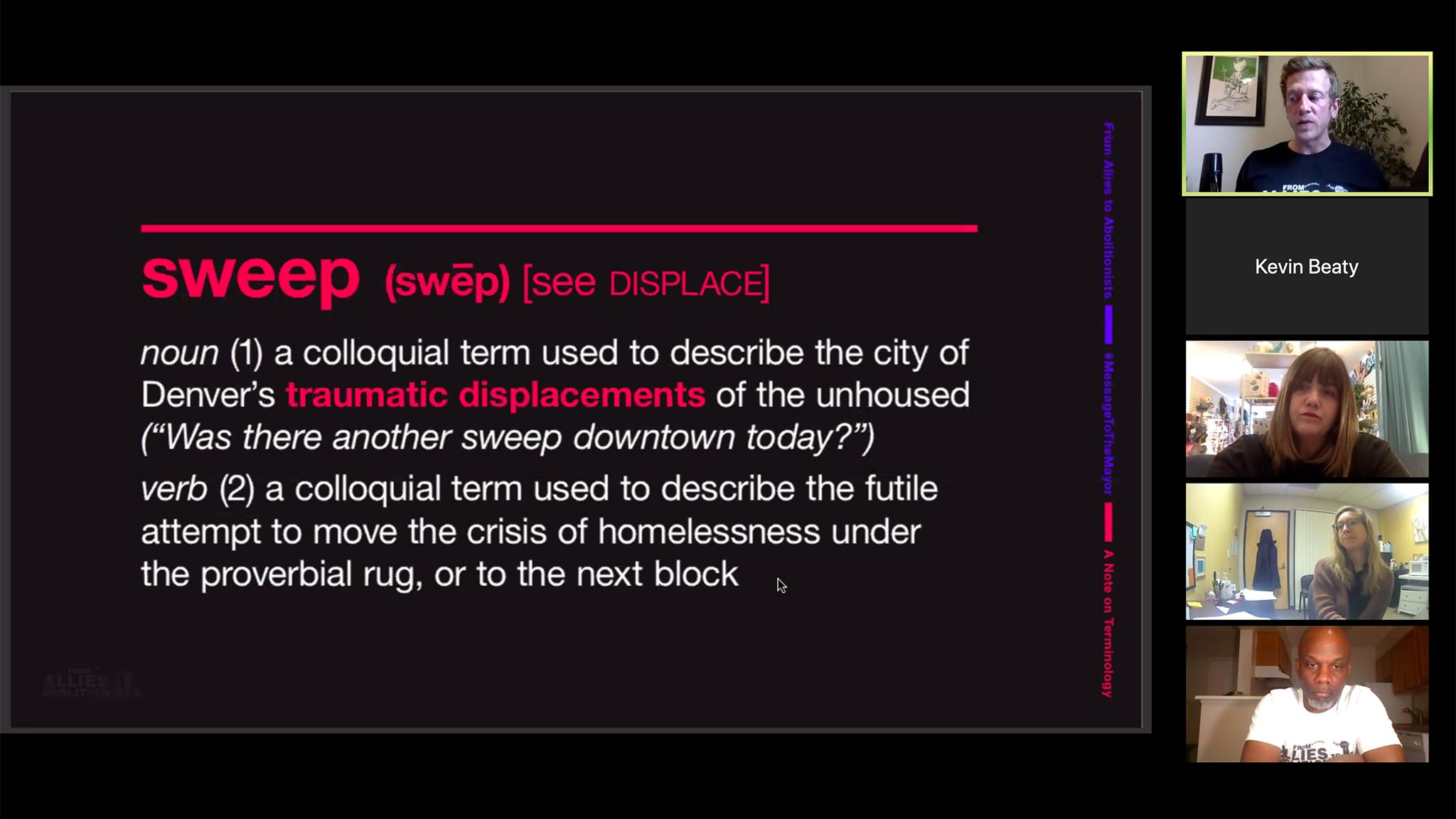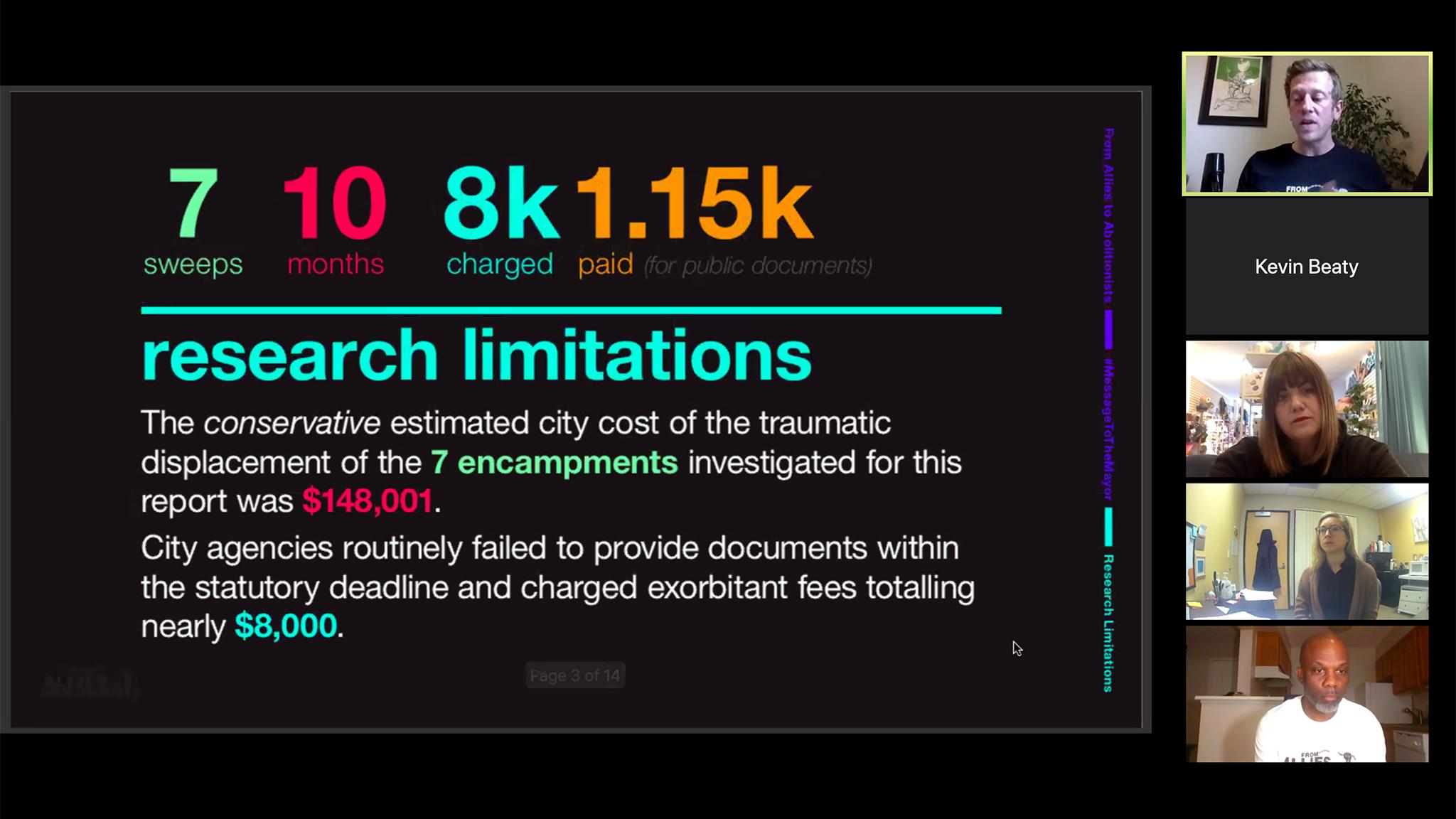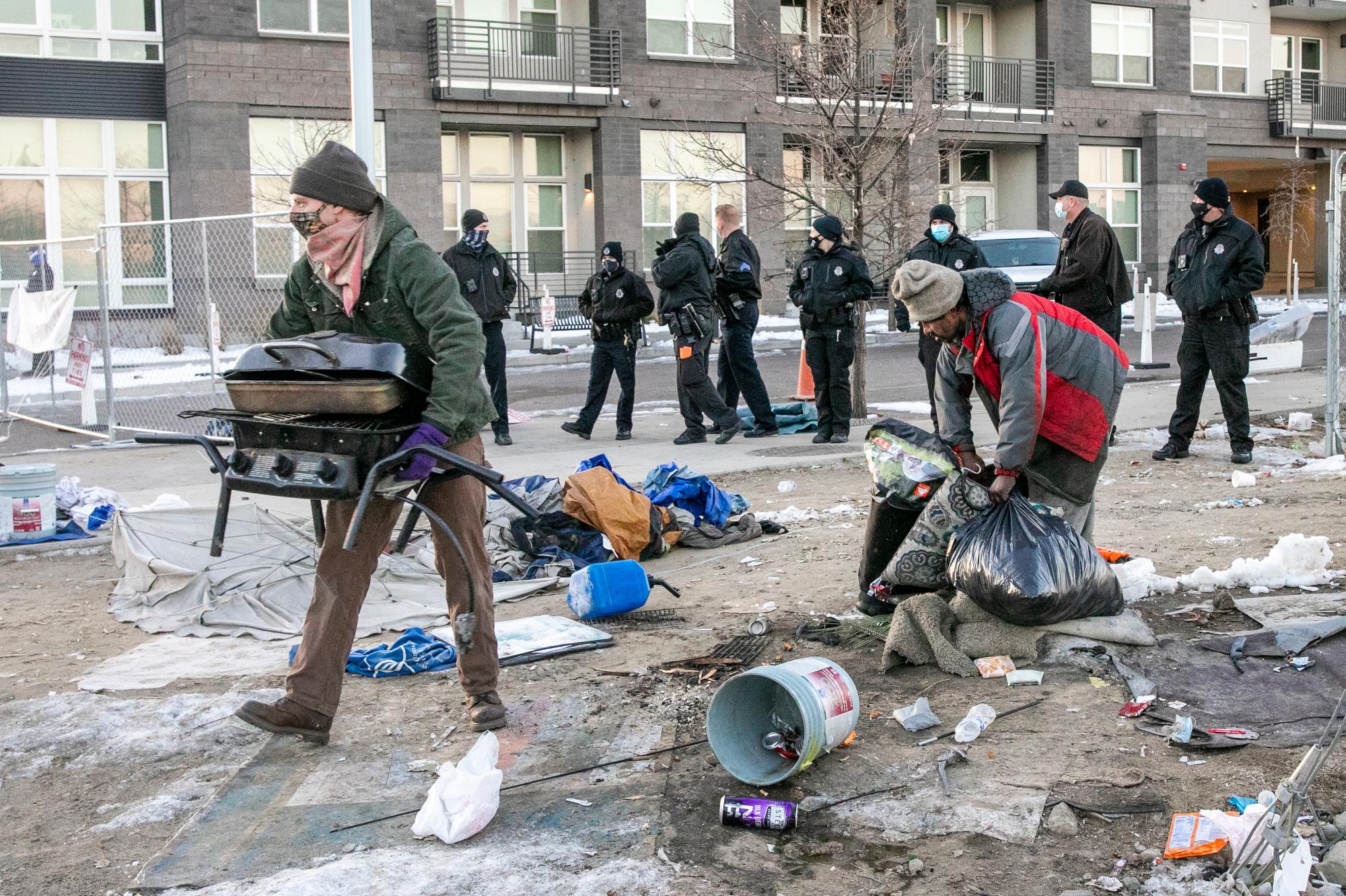An activist coalition called From Allies to Abolitionists is calling on Denver to give a hard look at the ways the city handles people experiencing homelessness.
There are a lot of terms used to describe the large-scale, multi-agency actions that break up urban encampments. They're colloquially known as "sweeps," though Mayor Michael Hancock and his team don't like that word. Hancock's spokesperson, Theresa Marchetta, told us it "mischaracterizes" the city's "commitment" to helping people dealing with homelessness and "dehumanizes our most vulnerable residents." She and her colleagues prefer to call them "cleanups." A judge ruling on a lawsuit against the cleanups refers to them as sweeps (as such, we use "sweeps").
In a press conference Friday morning, From Allies to Abolitionists organizer Jeff Campbell made it clear his group wants to refocus how they describe these events. He calls them "traumatic displacements."
Campbell's group was behind the "Message to the Mayor" protest song that dropped a few weeks ago. They've also gathered hundreds of emails and invoices from city departments to try to make their case that the way Denver handles encampments does not help people move closer to housing and stability.
The coalition has three overarching goals. One: End sweeps. Two: Provide more safe outdoor spaces for people to live in. Three: Provide bathrooms and hand-washing stations for people living outside.
Members of the group know these calls to action will take time, if they ever come to fruition. So they raised another demand on Friday that they hope might move the needle: They want the city to investigate the costs and procedures involved in the large-scale sweeps.
"We will continue to ask City Council to call for a special audit. We will continue to ask the mayor's office to provide us the information that we know that they have," Campbell said over Zoom. "City Council: Please, we need to know how much we are wasting and how that money could be reallocated to solutions."
Campbell and his collaborators have been talking with Denver Auditor Tim O'Brien about a deeper look. O'Brien is already planning two related investigations in 2021.
Tayler Overschmidt, O'Brien's spokesperson, told us the auditor has spoken with a couple of groups about their concerns regarding sweeps. O'Brien's 2021 Audit Plan includes two investigations into issues facing unhoused residents. First up is a deeper look at the city's shelters, which "will assess the efficiency and effectiveness of the city's shelter system for people experiencing homelessness," she said. The second audit will review "the effectiveness and efficiency of providing medical support services to people experiencing homelessness."
While neither of the audits represents the targeted investigation that Campbell and his colleagues would like to see, Overschmidt said O'Brien "intends to request information about the cost of encampment cleanups as part of one of the planned audits in 2021."

She added: "Issues related to the city's services for people experiencing homelessness are definitely of interest to Auditor O'Brien."
We asked Marchetta if Mayor Hancock would support an internal audit that specifically looked into sweeps. She didn't answer the question directly, but she did say the city is "committed to accelerating, enhancing and increasing outreach, engagement, substance misuse treatment and mental healthcare, as well as housing and sheltering options." She said Friday that the city's most pressing concern was providing shelter for people without homes as temperatures continued to plummet.
Hancock has advocated for unhoused residents to get a higher priority in the state's COVID-19 vaccine rollout, telling Gov. Polis that they face greater infection risks when taking shelter on cold nights.
While they'd like to see an official audit, the activists didn't wait for one. They used open-records requests to get tons of documents and take a crack at one themselves.
The bulk of their press conference on Friday centered on the information they gathered in recent weeks about sweeps in 2020. Their report, called "Message to the Mayor #2," outlined their process and what they learned.
Their audit focused on seven major "displacements" in 2020, though they note that more than 30 took place last year. Invoices they were able to get from the seven major displacements showed the city paid contractors nearly $70,000. They also tried to estimate the value of city workers' time on the sweeps. In total, they said the city spent $140,000 on staffing and contractors.
Still, these are just estimates. Nailing down the true cost is one reason why the group wants the city to conduct an official analysis. Another is the price to look into it themselves. From Allies to Abolitionists paid $1,147.50 to fulfill Colorado Open Records Act requests for emails and invoices. Certain requests required work from city staffers - per CORA rules, the first hour of labor is free, and the city usually charges $33 per hour after that. The activists filed 12 requests that required more than an hour's worth of work. After city records custodians said they would cost nearly $8,000 to investigate, the group backed off a few requests.














